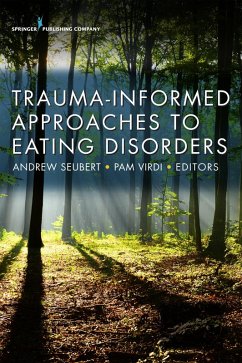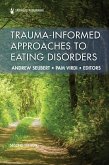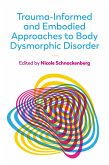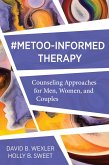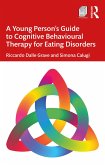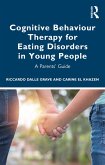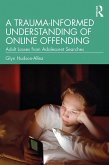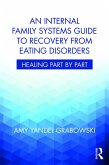Delivers a proven treatment model for clinicians in all orientations
This unique, hands-on clinical guide examines the significant relationship between trauma, dissociation, and eating disorders and delivers a trauma-informed phase model that facilitates effective treatment of individuals with all forms of eating disorders. It describes, step-by-step, a four-phase treatment model encompassing team coordination, case formulation, and a trauma-informed, dissociation- and attachment-sensitive approach to treating eating disorders.
Edited by noted specialists in eating and other behavioral health disorders, Trauma-Informed Approaches to Eating Disorders examines eating disorders from neurological, medical, nutritional, and psychological perspectives. Dedicated chapters address each treatment phase from a variety of orientations, ranging from EMDR and CBT to body-centered and creative therapies. The book also reveals the effectiveness of a multifaceted, phase model approach. Recognizing the potential pitfalls and traps of treatment and recovery, it also includes abundant psychoeducational tools for the client.
KEY FEATURES:
This unique, hands-on clinical guide examines the significant relationship between trauma, dissociation, and eating disorders and delivers a trauma-informed phase model that facilitates effective treatment of individuals with all forms of eating disorders. It describes, step-by-step, a four-phase treatment model encompassing team coordination, case formulation, and a trauma-informed, dissociation- and attachment-sensitive approach to treating eating disorders.
Edited by noted specialists in eating and other behavioral health disorders, Trauma-Informed Approaches to Eating Disorders examines eating disorders from neurological, medical, nutritional, and psychological perspectives. Dedicated chapters address each treatment phase from a variety of orientations, ranging from EMDR and CBT to body-centered and creative therapies. The book also reveals the effectiveness of a multifaceted, phase model approach. Recognizing the potential pitfalls and traps of treatment and recovery, it also includes abundant psychoeducational tools for the client.
KEY FEATURES:
- Examines eating disorders from neurological, medical, nutritional, and psychological perspectives
- Highlights the relationship between trauma, dissociation, and eating disorders
- Maps out a proven, trauma-informed, four-phase model for approaching trauma treatment in general and eating disorders specifically
- Elucidates the approach from the perspectives of EMDR therapy, ego state therapy, somatosensory therapy, trauma-focused CBT, and many others
- Provides abundant psychoeducational tools for the client to deal with triggers and setbacks
- Offers the knowledge and expertise of over 20 international researchers, medical professionals, and clinicians
Dieser Download kann aus rechtlichen Gründen nur mit Rechnungsadresse in A, D ausgeliefert werden.

